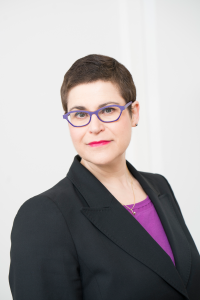Getting our priorities right

Peaceful resolution of violent conflict requires serious investments of time, goodwill, and professional effort. It requires far less money than you might think, says CMI’s Executive Director Tuija Talvitie in our latest annual report.
President Ahtisaari’s legacy is the bedrock of CMI. He founded CMI because he understood well the urgent need for an organisation that could tackle the root causes of violent conflicts. Understanding what breeds conflicts and wars, and investing in their prevention, is possible only if that is what we choose to do. Martti Ahtisaari’s key principles are the driving force of CMI’s work: the understanding that peace is a question of political will and skill; the importance of keeping channels of communication open to all parties; the importance of ensuring that women have a strong role in mediation processes; and most of all, the importance of the belief that all conflicts can be resolved.
Conflicts are all about power. We must understand that the most visible actors are not always the ones to make breakthroughs in sensitive negotiations. In cases like Syria, Libya or Yemen, the issues are too charged, and too heavily loaded with high expectations, to be addressed in the global spotlight. Before solutions can be discussed, extensive groundwork under the radar is vital – to build mutual trust, to establish contacts, and to carefully examine all the options. This sensitive and discrete work is what CMI specializes in. Because we are independent of governments we can organize dialogue and mediation support informally without political pressure.
We are trusted precisely because we have no selfserving agenda that would pose a risk for the parties. Our sole interest is in helping to bring about a peaceful resolution and reconciliation. We have a unique freedom to operate in sensitive areas and talk with people others cannot or will not meet. This is freedom that money cannot buy. And this is where small is beautiful. This is our smart niche.
The spillover effects of chronic conflict highlight not only the despicable nature of war, but also the failures of warring states to fulfil the expectations of their people for a better tomorrow. Having a vision of a more just society that people can believe in and commit to is important not only in restoring peace today, but also in preventing tomorrow’s wars. People’s expectations for a better future can be addressed through inclusive societal dialogue, and by building democratic mechanisms to transform these aspirations into broader social commitments. We would do well to seriously invest in preventive engagement, as opposed to last-minute crisis management.
Supporting dialogue in closed states and societies is one very cost-effective preventive measure. But helping others to solve problems that directly affect them requires deep sensitivity to cultural and political conditions. It also demands multilateral cooperation and setting aside self-interested agendas.
The use of force is sometimes unavoidable, but it cannot be an end in itself. More soldiers does not bring more peace. Greater efforts are needed to understand what drives extremism and conflict. Actions to strengthen relations between the state and civil society, to tackle systemic corruption and weak governance, can help build well-functioning societies that serve their citizens, rather than serving any elite.
There are no quick fixes for violent discord, but our key commitments to smart solutions deserve our best efforts. See what you make of this: the global military expenditure now stands at an average of four billion euros – a day. A small fraction of that amount would pay for thousands of rounds of dialogue and peace talks. Food for thought.